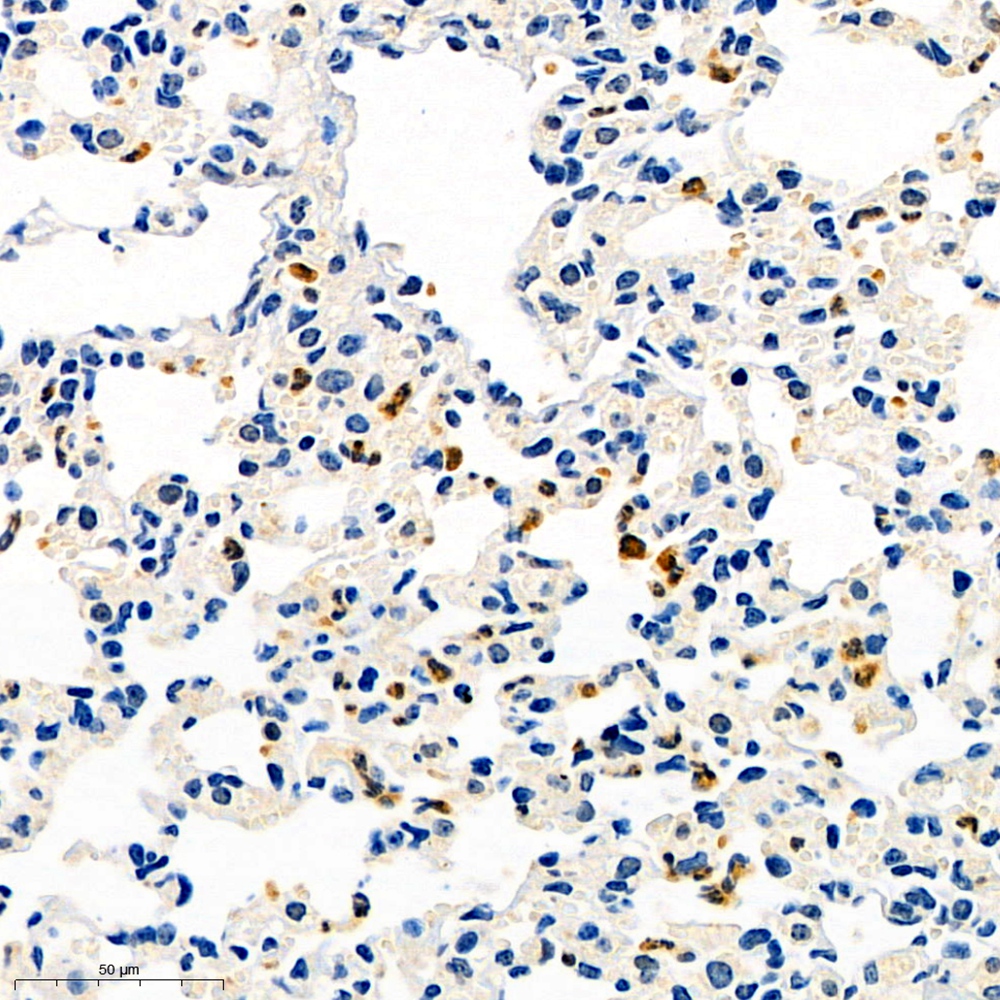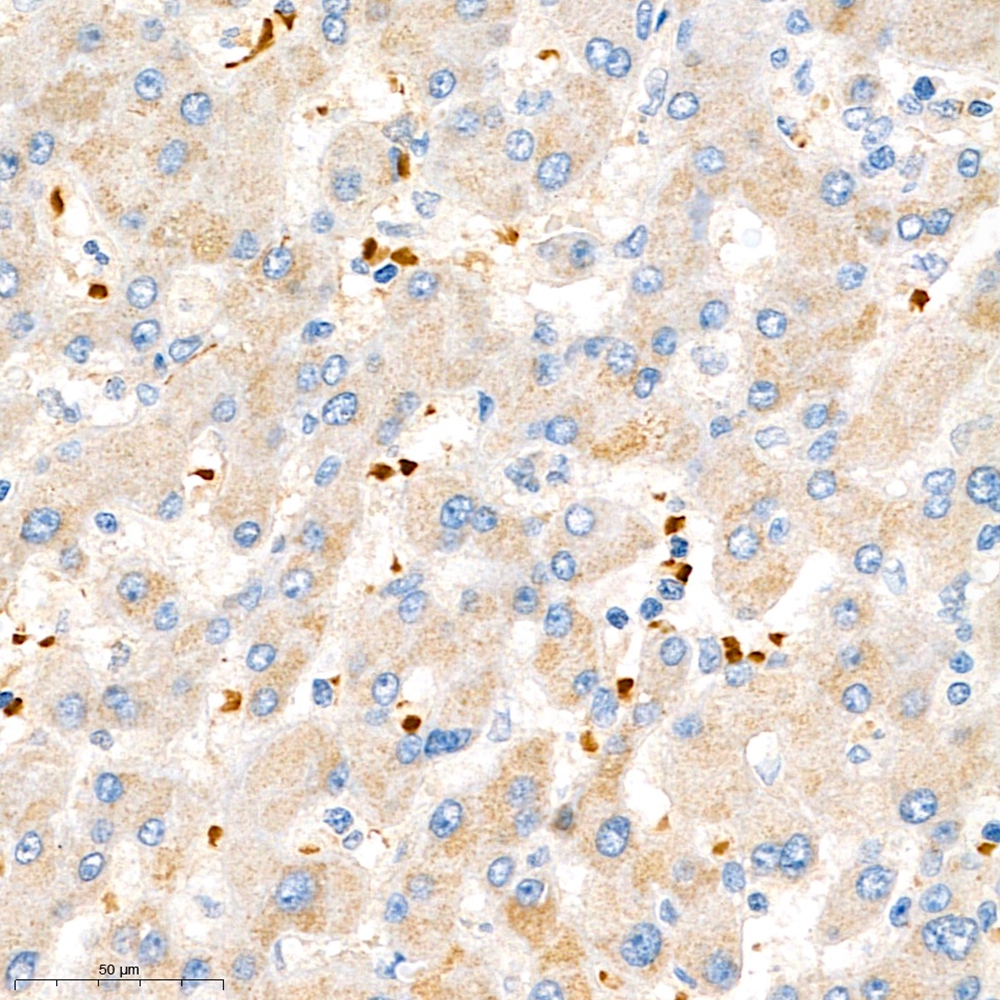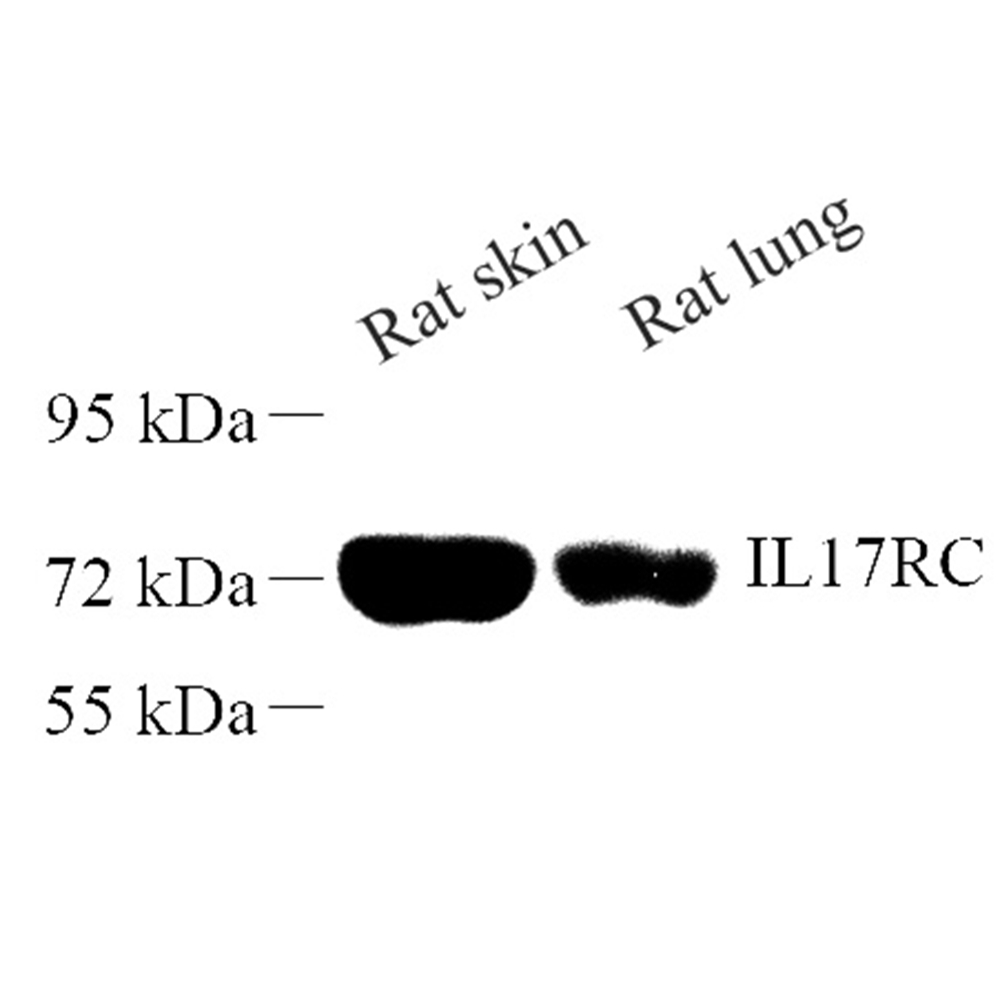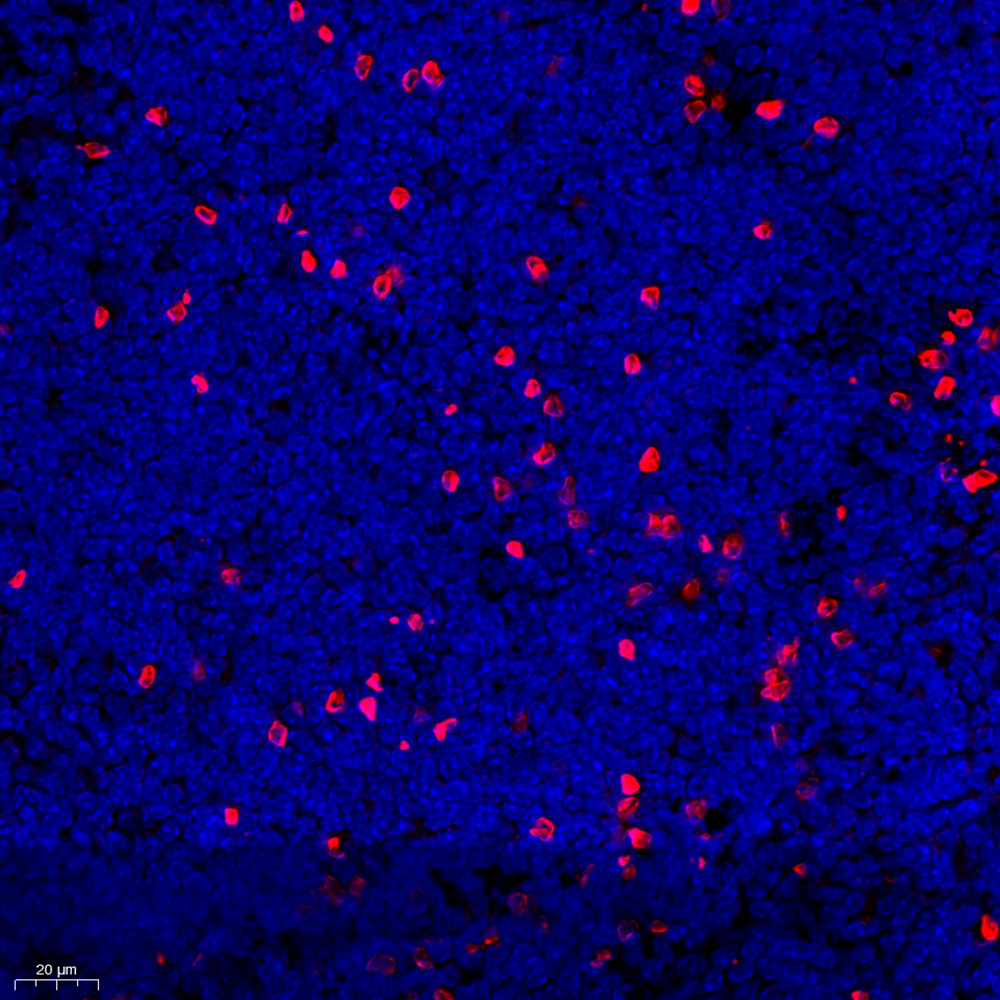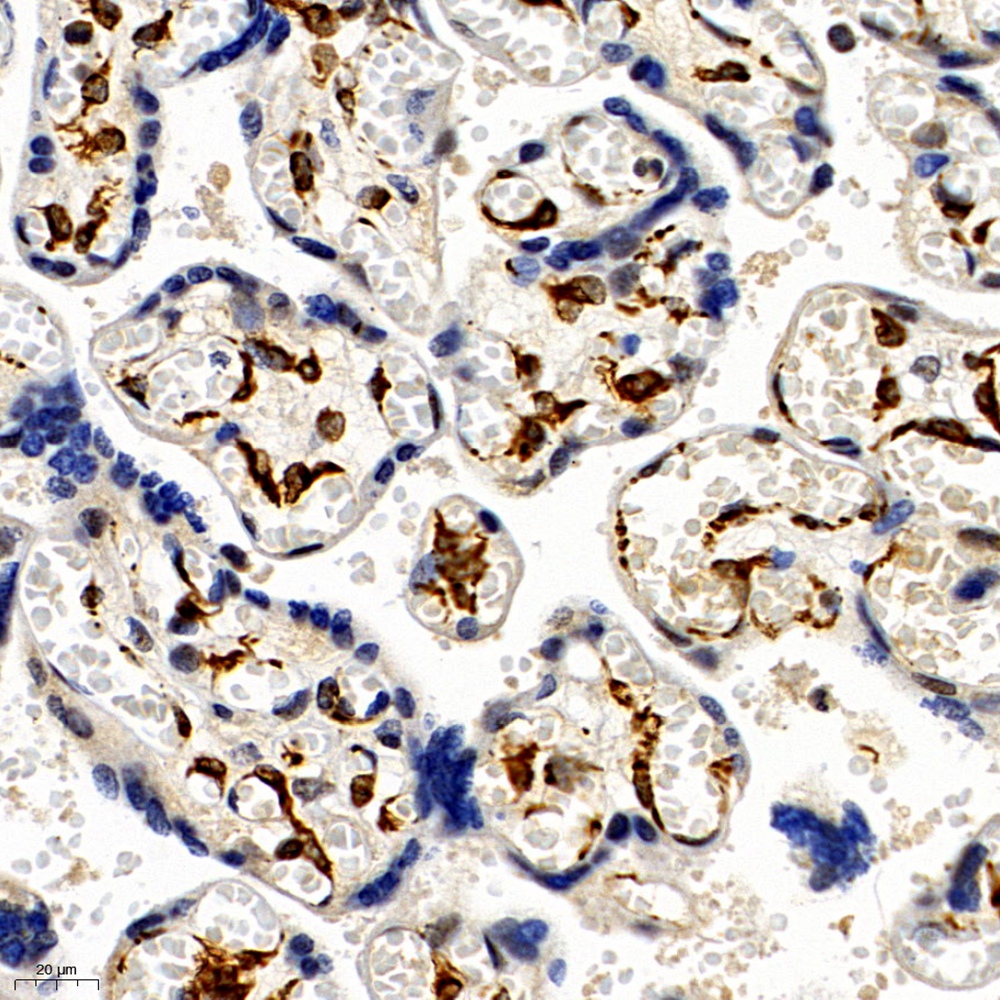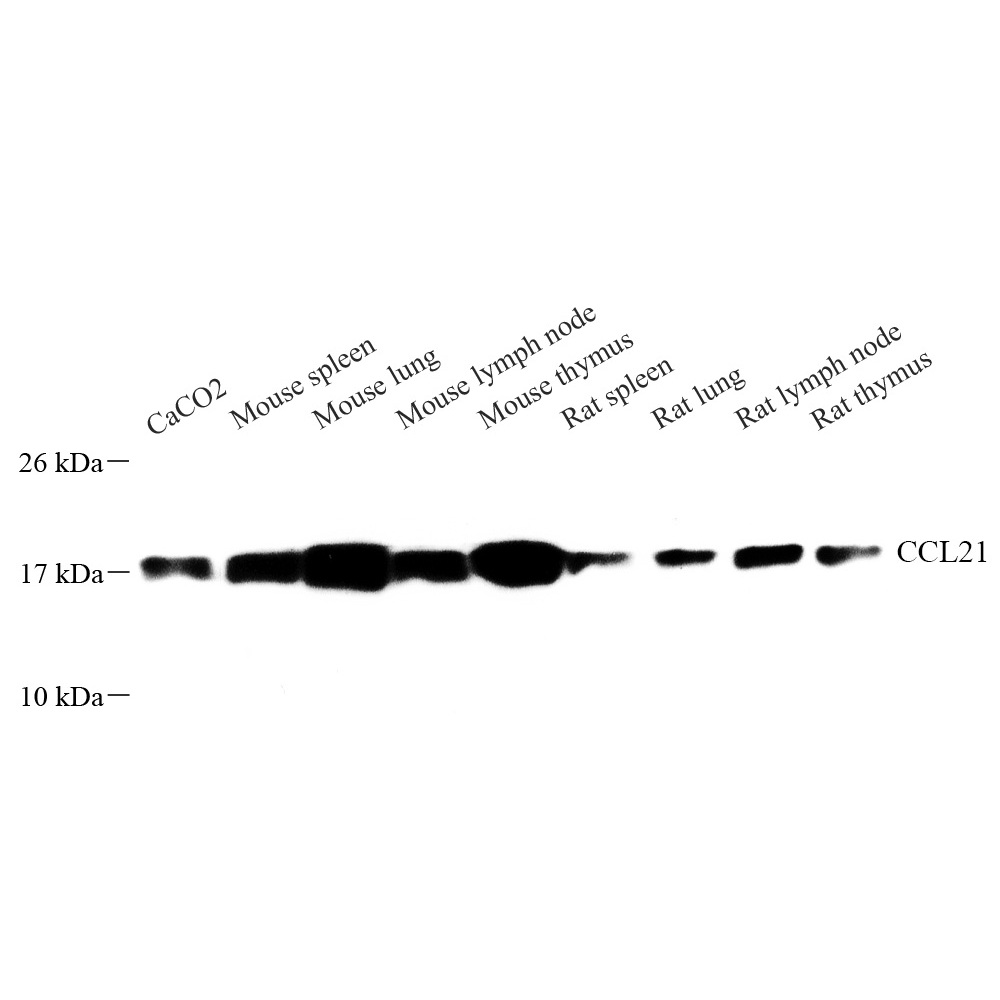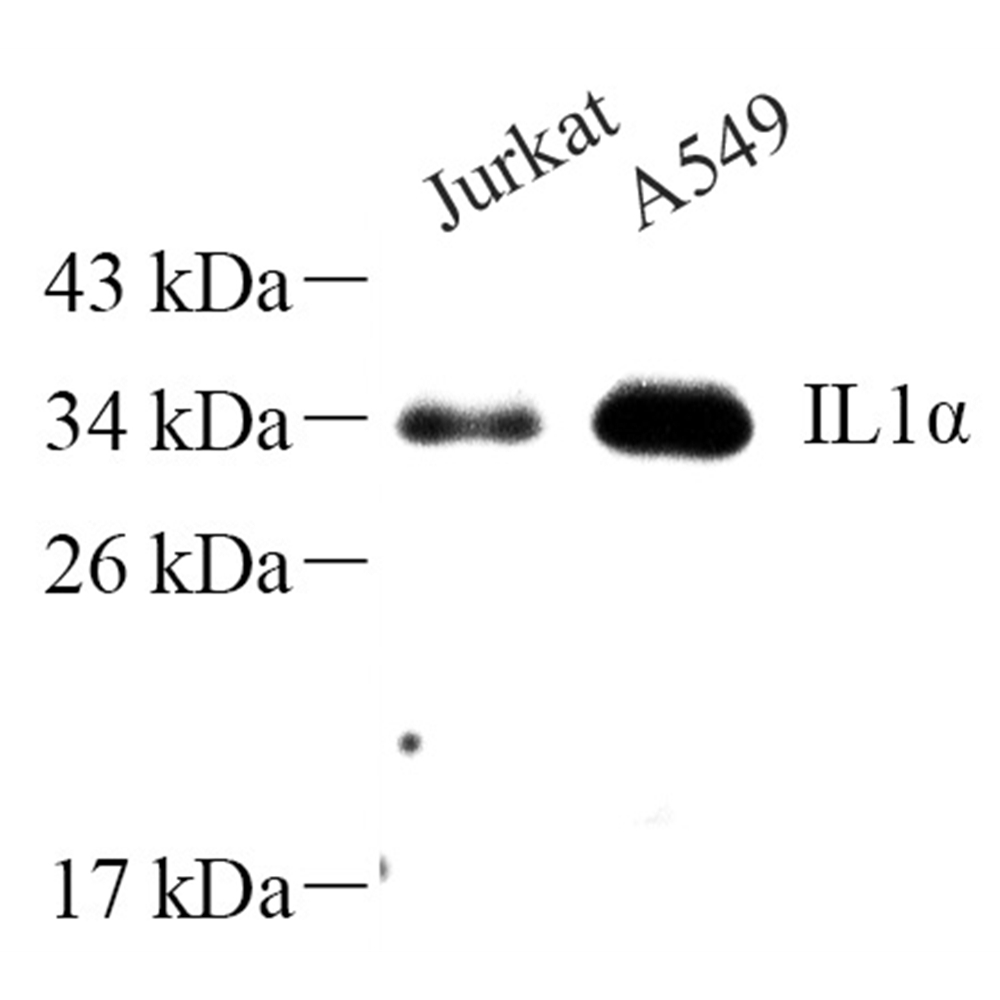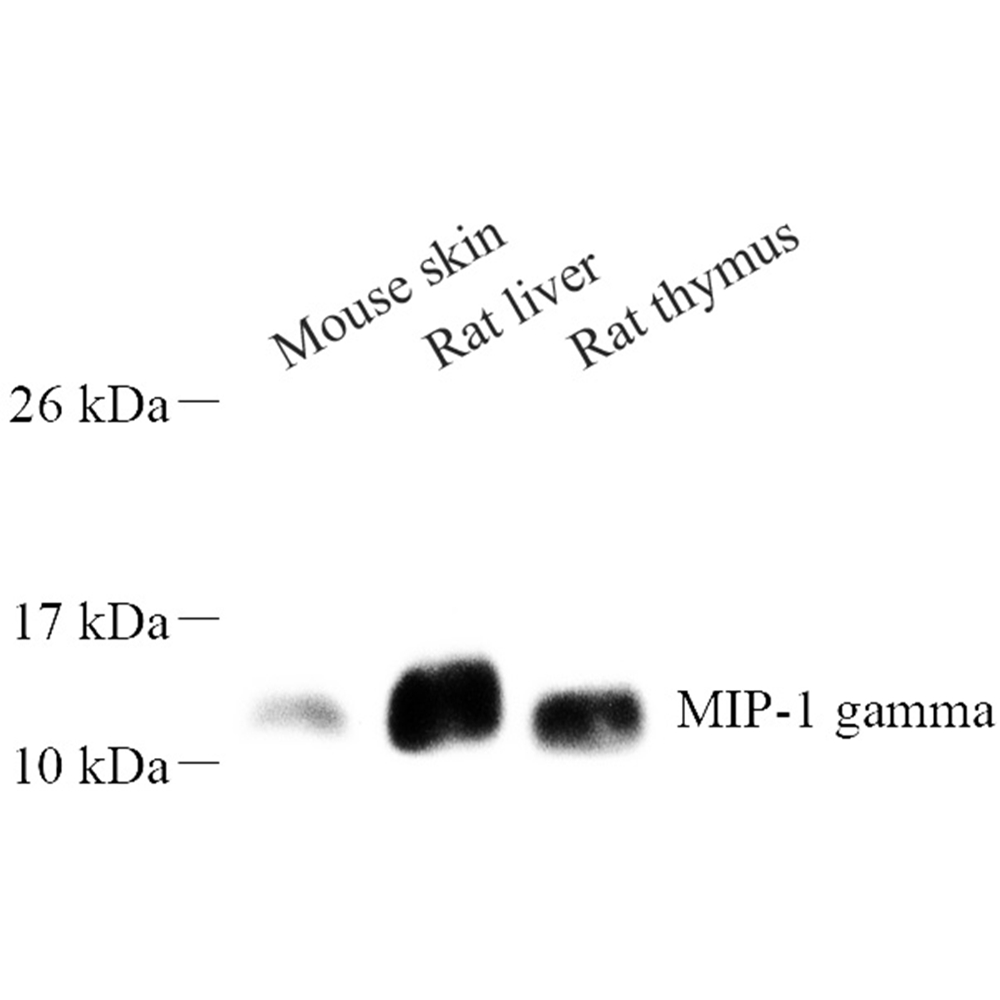服務(wù)熱線(xiàn)
400-1016-218


全國(guó)統(tǒng)一服務(wù)熱線(xiàn)
400-1016-218
科研好幫手 專(zhuān)業(yè)生產(chǎn)商
本公司產(chǎn)品僅供科研使用
您現(xiàn)在所在位置:主頁(yè) > 產(chǎn)品中心 > 抗體 >>一抗 >>趨化因子受體 >> Anti -CCR5 Rabbit pAb
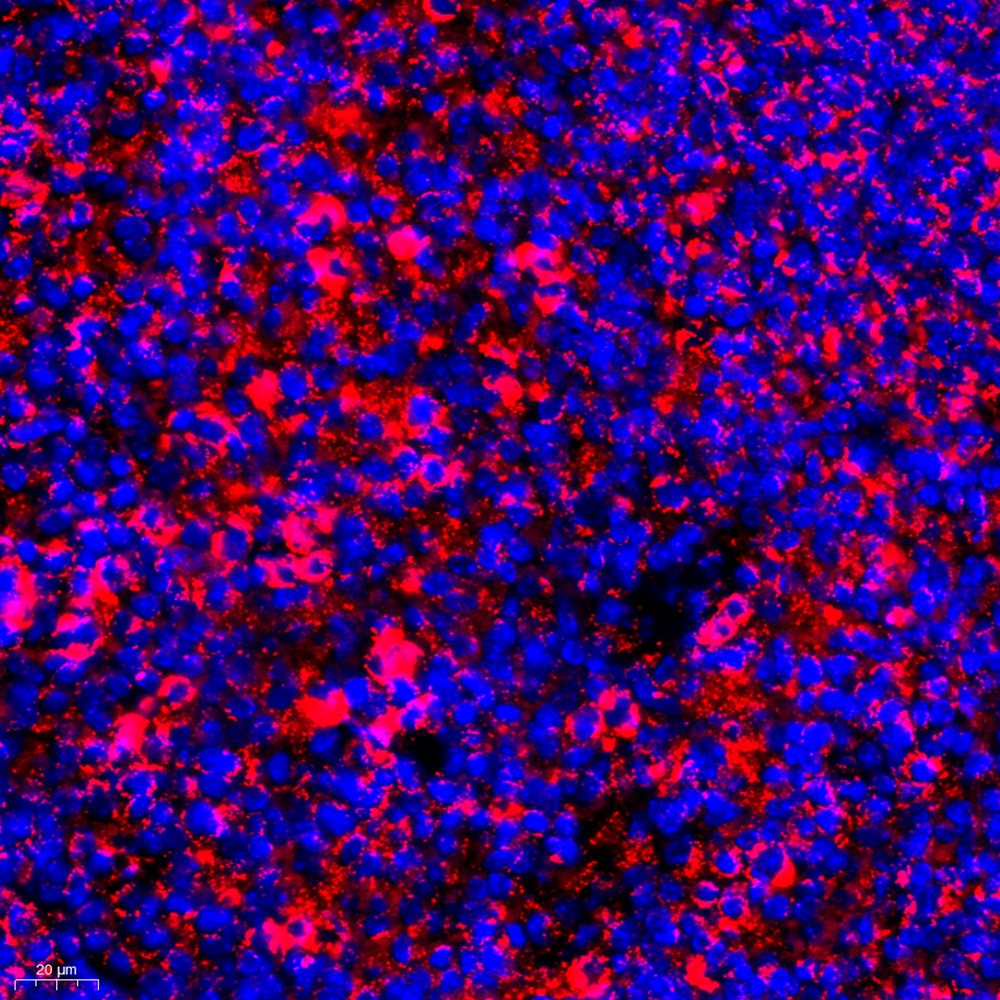

Product Information
|
Description |
CCR5 rabbit polyclonal |
|
Protein full name |
C-C chemokine receptor type 5 |
|
Synonyms |
CC-CKR-5, CCCKR5, CCR-5, CD195, CKR-5, CKR5, CMKBR5, IDDM22, C-C motif chemokine receptor 5 |
|
Immunogen |
KLH conjugated Synthetic peptide corresponding to Mouse CCR5 |
|
Isotype |
IgG |
|
Purity |
Affinity purification |
|
Subcellular location |
|
|
Uniprot ID |
Applications
|
applications |
species |
dilution |
Positive tissue |
|
IHC |
Mouse, Rat |
1: 500-1: 1000 |
spleen, thymus |
|
IF |
Mouse, Rat |
1: 500-1: 1000 |
cartilage, spleen, lung, ovary |
Background
C-C chemokine receptor type 5, also known as CCR5 or CD195, is a protein on the surface of white blood cells that is involved in the immune system as it acts as a receptor for chemokines. This is the process by which T cells are attracted to specific tissue and organ targets. Many forms of HIV, the virus that causes AIDS, initially use CCR5 to enter and infect host cells. Certain individuals carry a mutation known as CCR5-Δ32 in the CCR5 gene, protecting them against these strains of HIV.
Images

|
Immunohistochemistry analysis of paraffin-embedded mouse spleen using CCR5 (GB11505) at dilution of 1:500. |

|
Immunohistochemistry analysis of paraffin-embedded rat spleen using CCR5 (GB11505) at dilution of 1:500. |

|
Immunohistochemistry analysis of paraffin-embedded rat thymus using CCR5 (GB11505) at dilution of 1:500. |
|
|
Immunofluorescent analysis of paraformaldehyde-fixed mouse spleen using CCR5 (GB11505) at dilution of 1:500 |
|
|
Immunofluorescent analysis of paraformaldehyde-fixed mouse ovary using CCR5 (GB11505) at dilution of 1:500 |
|
|
Immunofluorescent analysis of paraformaldehyde-fixed rat lung using CCR5 (GB11505) at dilution of 1:500 |
|
|
Immunofluorescent analysis of paraformaldehyde-fixed rat cartilage using CCR5 (GB11505) at dilution of 1:500 |
Storage
| Storage | Store at -20 ℃ for one year. Avoid repeated freeze/ thaw cycles. |
| Storage Buffer | PBS with 0.02% sodium azide, 100 μg/ml BSA and 50% glycerol. |
NOTE:
1.This product is intended for research only.
2.This product is recommended to dilute with the Primary Antibody Dilution Buffer .
合肥萬(wàn)物生物科技有限公司
客服熱線(xiàn):400-1016-218
QQ:355185756
地址:安徽省合肥市高新區(qū)黃山路602號(hào)合肥國(guó)家大學(xué)科技園A401室



 關(guān)注微信公眾號(hào)
關(guān)注微信公眾號(hào)




